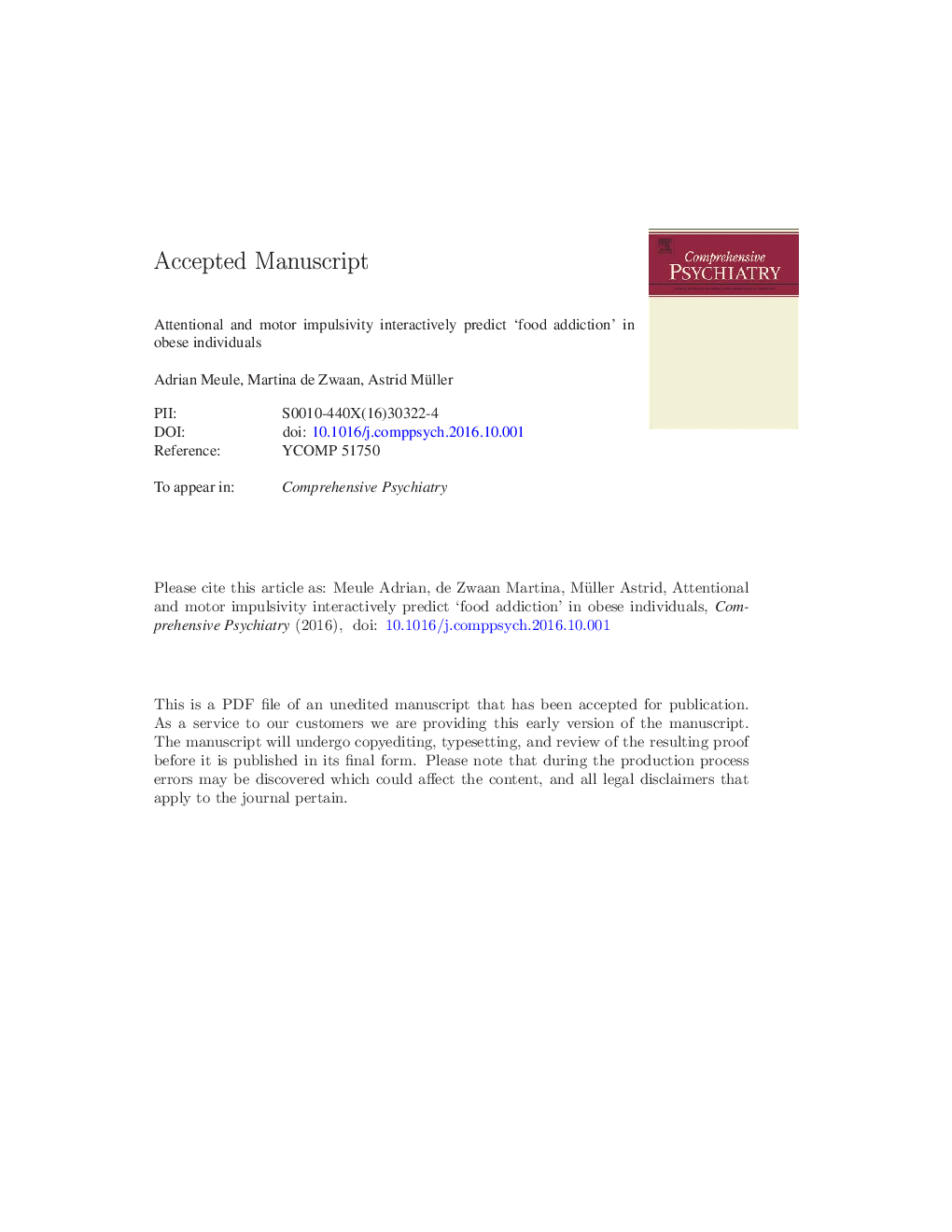| Article ID | Journal | Published Year | Pages | File Type |
|---|---|---|---|---|
| 4930144 | Comprehensive Psychiatry | 2017 | 20 Pages |
Abstract
Results support previous findings showing that non-planning impulsivity does not appear to play a role in eating-related self-regulation. Furthermore, this is the first study that shows interactive effects between different impulsivity facets when predicting 'food addiction' in obese individuals. Self-regulatory failure in eating-regulation (e.g., addiction-like overeating) may particularly emerge when both attentional and motor impulsivity levels are elevated.
Related Topics
Life Sciences
Neuroscience
Biological Psychiatry
Authors
Adrian Meule, Martina de Zwaan, Astrid Müller,
